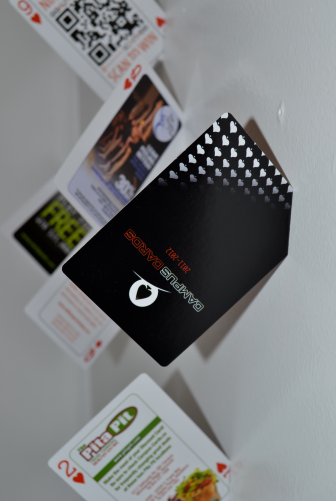Date Posted: September 22, 2011
Print Edition: September 21, 2011
 Everywhere we go, we are surrounded by advertisements. Even those determined to live a cloistered life find they are not completely immune.
Everywhere we go, we are surrounded by advertisements. Even those determined to live a cloistered life find they are not completely immune.
The library, the recreation centre, the town square: our most treasured public spaces are being overrun by new marketing strategies.
The university campus was one refuge against encroaching commercialism, a place where ideas could be discussed without distraction.
But now, the moment you set foot on campus you see brand names stamped on vending machines, sponsors littered throughout the athletic centre, and the name of a multinational corporation stitched onto the uniforms of our cafeteria staff.
Even this newspaper contains advertisements. In many ways, this is the harsh reality of the age we find ourselves in. Without such sponsorships, many of these institutions would not survive. But shouldn’t we be a little more critical of what we see on campus?
This week, I wrote an article about a new Vancouver-based company called Campus Cards.
This student-run advertising venture provides students with free decks of cards containing advertisements for Lower Mainland businesses seeking to reach the elusive student demographic.
While the makers of the cards claim they will help students connect with local, Abbotsford businesses, only a small portion of the cards fit the bill.
We must ask ourselves the true cost of advertising in an academic environment.
If advertising discourages independent decision-making, doesn’t that contradict the mission of a liberal arts education? Does its prevalence on campus distract from or subvert the ultimate purpose of higher education: critical thinking?
Many of the Campus Cards reps and some students I spoke with partly rationalized this additional advertising by pointing out that constant exposure to marketing is a fact of life in the twenty-first century.
If so, have we grown apathetic? Are students so inundated with advertising that they’ve become desensitized to it?
Or is the outlook so bleak that we are simply giving up in this generation’s battle against rampant consumerism?
Every day we are asked to accept the presence of ads in our public spaces and social gatherings. Through our lack of response, we are implicitly offering our consent to this process of normalization.
If we learn not to question these practices on the university campus, will we also fail to raise the alarm when advertisers seek to invade our parks and public schools?
While our institution may depend on some of these compromises, we must not be so eager to concede when it is unnecessary to do so.


